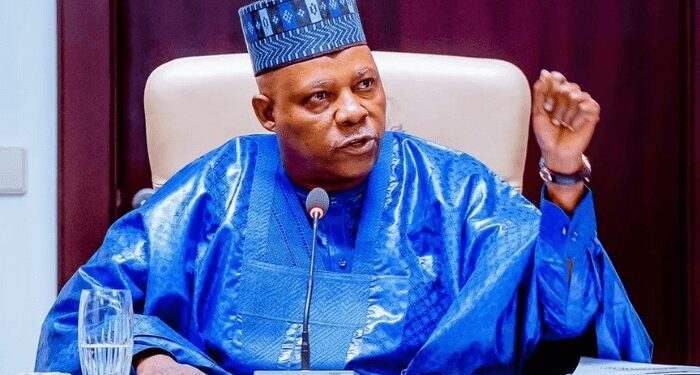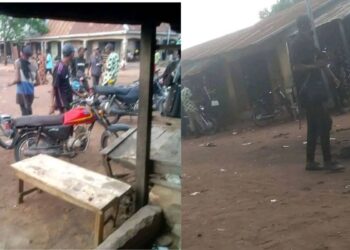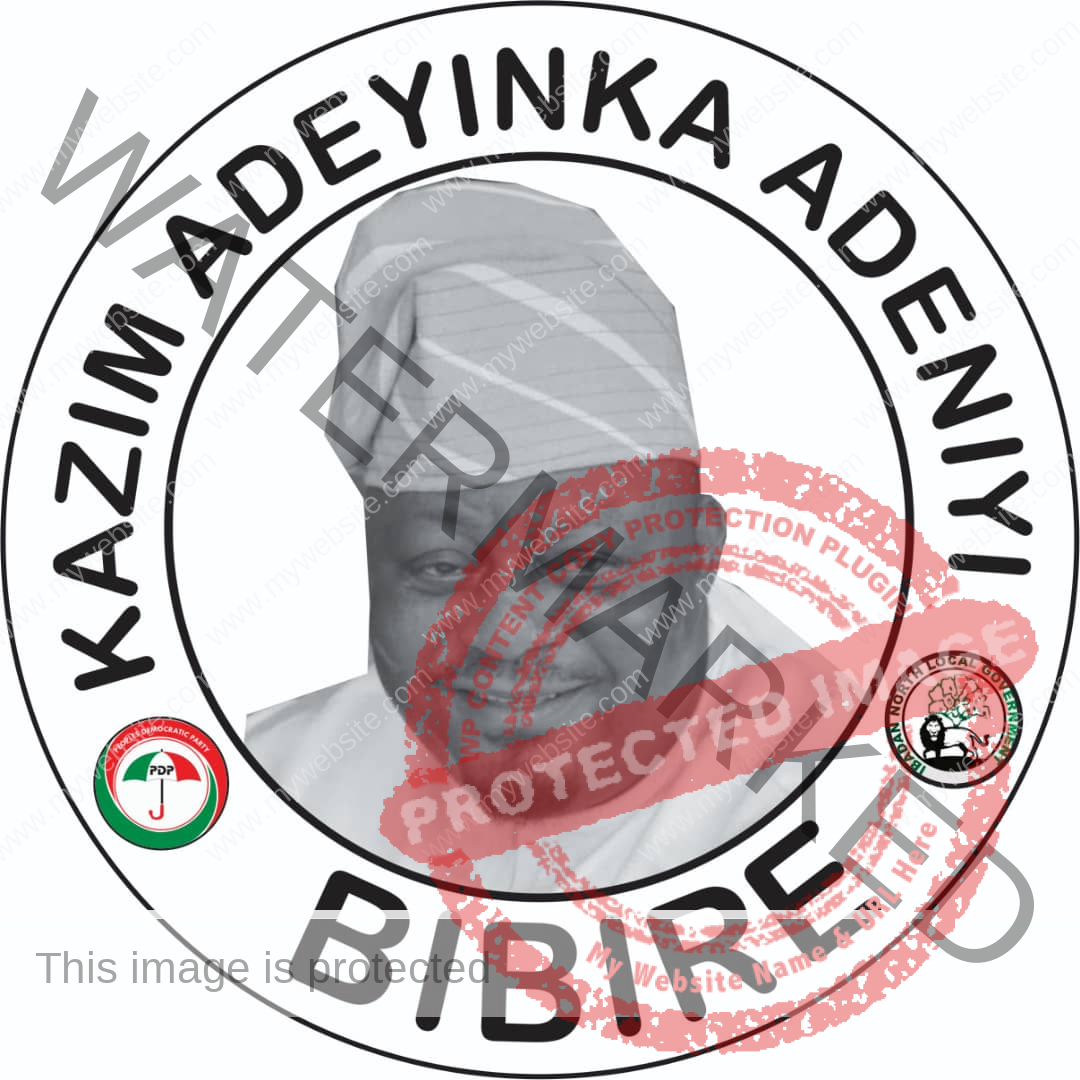
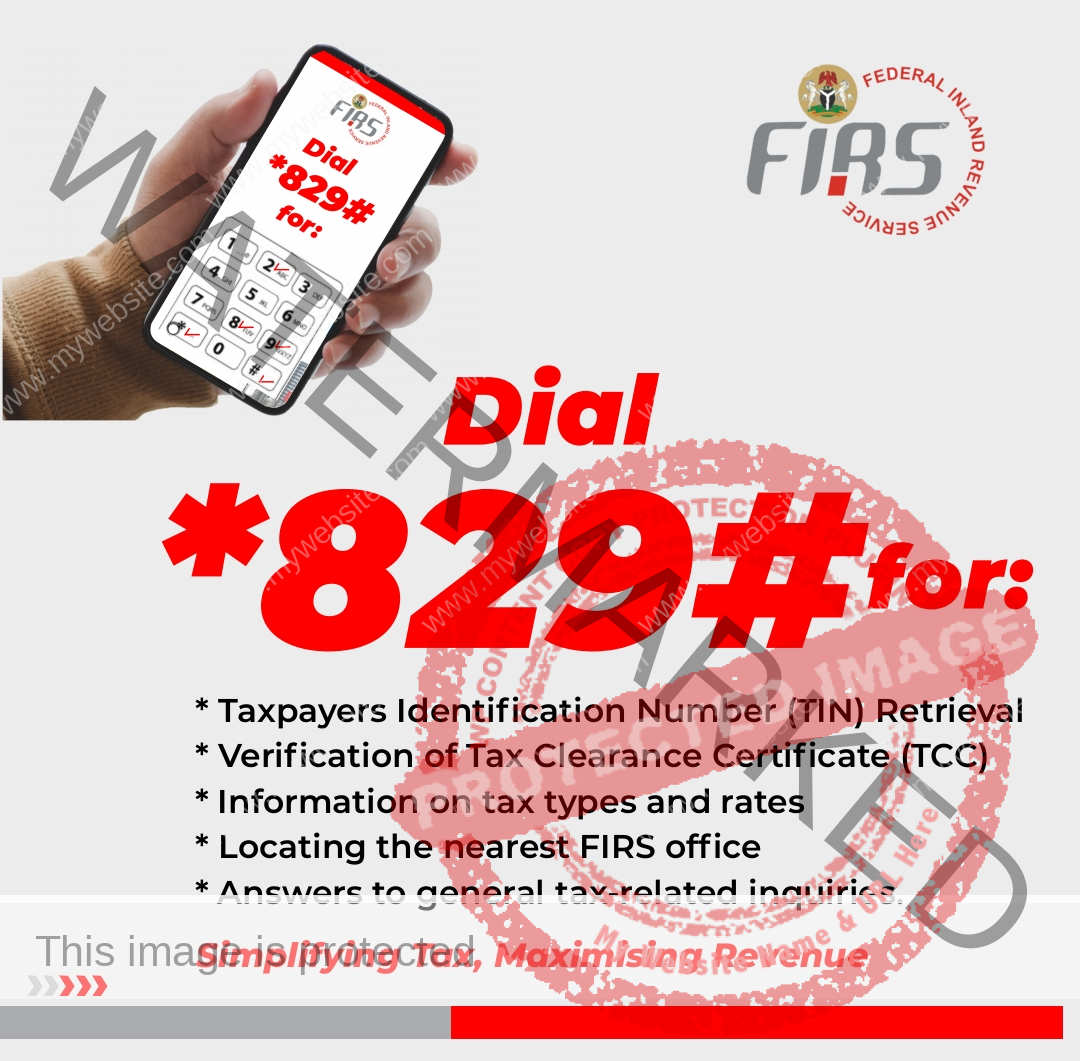
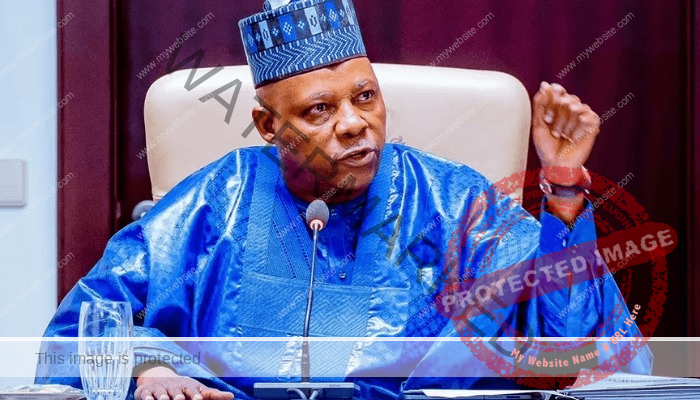
Nigeria’s Vice President, Kashim Shettima, has issued a stern warning to Professor Abdullahi Saleh-Usman, Chairman and Chief Executive Officer of the National Hajj Commission of Nigeria (NAHCON), over allegations of running the commission like a sole administrator. In an official communique dated March 17, 2025, Shettima expressed strong concern over Usman’s approach, citing violations of procurement processes, misconduct, sidelining of board members, and illegal appointment of aides.
The Vice President’s warning follows a petition from NAHCON’s board members, dated March 13, 2025, accusing Usman of deliberately excluding them from their statutory oversight responsibilities. The petition, signed by eight non-permanent commissioners representing the six geo-political zones and other key groups, highlights the chairman’s alleged failure to adhere to the commission’s act.
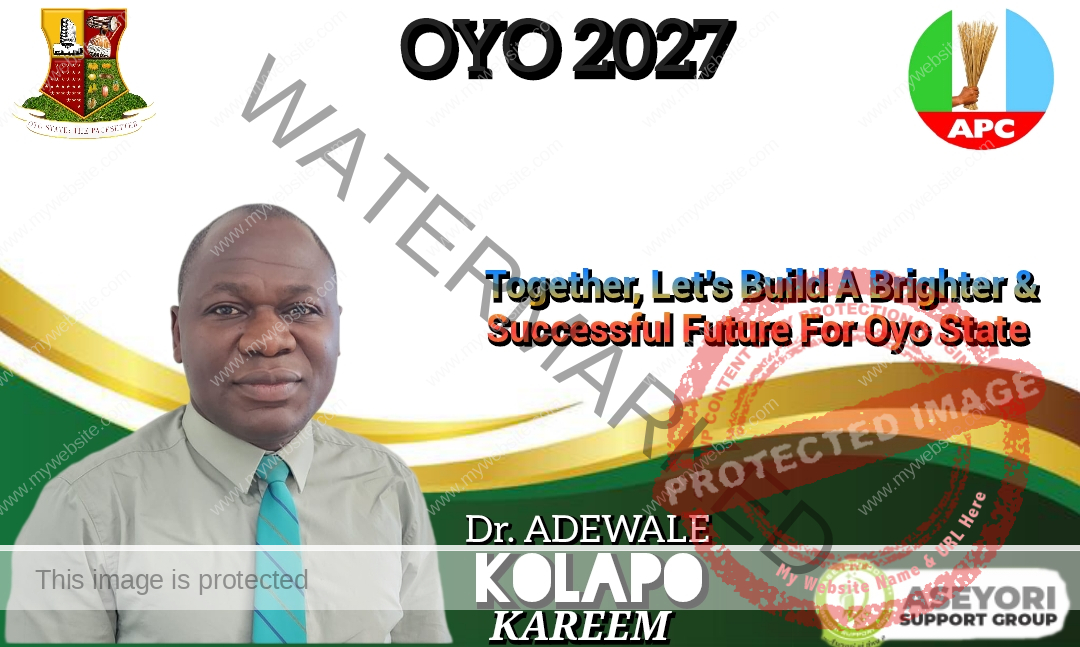
Shettima’s letter points out that Usman’s method of appointing committees to make decisions on behalf of the board violates the commission’s act. The act does not envisage a sole administrator role, and each member has a responsibility to the zone or entity they represent, especially with regards to all decisions relating to pilgrims’ welfare.

The board members had raised these concerns during a meeting on February 4, 2025, where Usman reportedly acknowledged lapses but failed to address them. Shettima reminded Usman of the provisions of the NAHCON Act, highlighting that all reference to the powers and regulatory responsibilities of the commission referred to the commission as a whole, not just the chairman.

The Vice President also noted that all major decisions of the commission must be in compliance with the law. He further warned Usman to ensure that board members are treated according to the act to avoid rendering them redundant.
The allegations of misconduct against Usman include violations of procurement processes, sidelining of board members, and illegal appointment of aides. Specifically, Usman has been accused of appointing family members to key positions within the commission, including his son Aliyu as a personal assistant, his brother Surajo as a special adviser, and his nephew Abdulmalik Diggi as special adviser and deputy director of accounts.
Some officials have called for the redeployment of Abubakar, Usman’s protective detail, who was accused of interfering in the commission’s operations instead of focusing on security. The Association of Senior Civil Servants in Nigeria has also raised concerns over alleged favoritism in the placement of pool officers and unfair treatment of commission workers.
Their letter, dated March 3, 2025, addressed to NAHCON’s executive council and board, accused the commission of administrative lapses. In a separate communication, Shettima also objected to Usman’s decision to rehire former or external staff on a contract basis, urging him to reverse such decisions to avoid creating redundancy within the commission.
Staff members within the commission have voiced their approval of Shettima’s intervention, with one official commenting, “We are happy with Vice President Shettima’s intervention. It is long overdue.” However, other staff members have criticized Usman’s leadership, labeling it “toxic” and calling for his removal to prevent further harm to the 2025 Hajj operations.
The Vice President’s warning highlights the need for transparency and accountability in the commission’s operations. As the 2025 Hajj operations approach, it is essential that NAHCON adheres to its statutory responsibilities and ensures the welfare of pilgrims is prioritized.
In light of these developments, it is crucial that NAHCON adheres to its statutory responsibilities and prioritizes transparency and accountability in its operations. The commission must ensure that all decisions are made in compliance with the law and that the welfare of pilgrims is prioritized.
The National Hajj Commission of Nigeria plays a crucial role in organizing the pilgrimage to Mecca for Nigerian Muslims. The commission’s effectiveness and efficiency are essential to ensuring a successful and stress-free experience for pilgrims.
As the situation unfolds, it remains to be seen how Usman will respond to the Vice President’s warning and the allegations of misconduct. Will he take steps to address the concerns raised, or will the situation escalate further?
In conclusion, Vice President Shettima’s warning to NAHCON Chairman Usman highlights the need for transparency and accountability in the commission’s operations. As the 2025 Hajj operations approach, it is essential that NAHCON adheres to its statutory responsibilities and ensures the welfare of pilgrims is prioritized.
NAHCON must prioritize transparency and accountability in its operations, ensuring that all stakeholders are informed and involved in decision-making processes. The commission must also ensure that all decisions are made in compliance with the law and that the welfare of pilgrims is prioritized.
By taking these steps, NAHCON can ensure a successful and stress-free experience for pilgrims and maintain the trust and confidence of stakeholders. The commission’s effectiveness and efficiency are essential to ensuring that the pilgrimage to Mecca is well-organized and that Nigerian pilgrims receive the best possible services.
In response to the Vice President’s warning, NAHCON Chairman Usman may need to revisit the commission’s decision-making processes and ensure that all board members are involved in key decisions. This could involve establishing clear guidelines for committee appointments and ensuring that all members are aware of their roles and responsibilities.
Some stakeholders have welcomed Shettima’s intervention, describing it as “long overdue.” They argue that Usman’s leadership style has created a toxic working environment within the commission, which could negatively impact the 2025 Hajj operations. These stakeholders are calling for Usman’s removal to prevent further harm to the commission’s operations.
The Independent Hajj Reporters, a civil society organization, has also urged Usman to focus on the 2025 Hajj preparations and avoid distractions. They note that the preparations are moving slowly, and it’s essential that the commission prioritizes the welfare of pilgrims.
As the situation unfolds, it remains to be seen how Usman will respond to the Vice President’s warning and the allegations of misconduct. The outcome will likely have significant implications for the commission’s operations and the success of the 2025 Hajj pilgrimage.
Ultimately, NAHCON’s effectiveness will depend on its ability to prioritize transparency, accountability, and the welfare of pilgrims. By working together, the commission can ensure a successful and stress-free experience for Nigerian pilgrims and maintain the trust and confidence of stakeholders.

